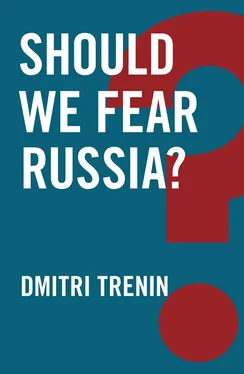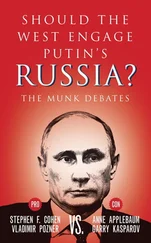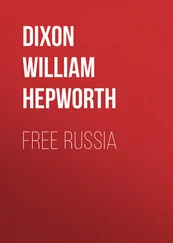China and Russia share an intense resentment of US global dominance. They both advocate a world order based on great-power equilibrium, although, while China dreams of a new kind of bipolarity, Russia is wedded to a “polycentric” system of several major players. Like Moscow, Beijing is adamantly opposed to a Western-supported spread of democracy and defends the existing political regime in the name of national sovereignty. Like Russia, China is seeking to dominate its neighborhood in the name of the national interest. It employs a strikingly different strategy from Russia’s in Crimea and Ukraine, but it clearly regards Taiwan, the islands in the East China Sea and much of the South China Sea as its core interests. For Beijing, increasing its influence in the neighborhood and eventually across Eurasia is a key part of the strategy of China’s global rise.
So far, in view of its evident limitations and potential for rivalry, the United States has been relaxed about the evolution of the Russian–Chinese relationship. This attitude, however, is overly complacent. Russia is not China’s equal, but neither is it its satellite. In principle, under a different system of governance and management, and with an economic model that encourages development and innovation, it could marshal enough resources and unchain sufficient potential to become a formidable and effective player. Russia’s decline is a reality, but whether this is terminal or temporary is an open question yet to be answered by the Russian people. In a number of key areas – military and foreign affairs, diplomacy, intelligence – Russia continues to be ahead of China. It does not have many allies, but it has pragmatically partnered with a number of countries, including India and Vietnam. Moscow has not written Tokyo off, and it keeps up a productive relationship with Seoul.
China and Russia are not going to clash over Central Asia, as some in the West have long been prophesying, and, while they will not build a formal alliance, Russia will be contributing to the growth of China’s air and sea power. As the two militaries exercise together, Beijing and Moscow will continue cooperating closely on world order and regional security issues. As the competition between China and the United States grows more intense, what China can get from Russia will become more important. The strategic triangle of Washington, Beijing and Moscow has mutated over the past forty-plus years, but it has not vanished as some thought. However, it has lost its salient feature: Washington no longer dominates. It is Beijing which now has better relations with Washington and Moscow than the latter two have between themselves.
This situation challenges the West to come up with a broader strategic approach. To have any chance of acceptance, the transcontinental/transoceanic security arrangement needs to be guided by the principles of politico-ideological pluralism and mutual respect. This will be a hard sell in the West and will probably result in the simultaneous preaching of values in public and a hard-nosed pursuit of interest in reality. The arrangement cannot be managed within a single overarching institution. Rather, better use will need to be made of the multiple existing institutions while ensuring better connectivity and interaction among them. Thus, the OSCE might find it useful to talk to the Shanghai Cooperation Organization (SCO); China could harmonize its “One Belt, One Road” project not only with the Eurasian Economic Union but also with the EU; and so on.
The Russia policy
In this broader picture, relations with Russia are but one, albeit important, element. Basically, the choice for the West in that relationship is between containment and engagement on mutually agreed terms. For now, containment is winning. Russia remains under pressure politically and economically. In the domain of public information, it is pictured as a rogue state led by a gang of criminal, corrupt, and even murderous figures. This approach, however, hinges on the expectation of Russia’s inevitable decline and hopes of a political transformation that would return the country to the Western orbit which it left in the mid-2000s.
Dealing with a disintegrating Russia would again, as twenty-five years ago in the case of the collapsing USSR, demand maximum attention to the issues of assuring nuclear security and preventing WMD proliferation. Much else could be borrowed from contemporary history books, but one key element will be missing: unlike in the final days of the Soviet Union and the first days of the new Russian Federation, the West will have few friends in the Kremlin or among the Russian elites, whether outgoing or incoming. It would also have to deal with a population which would blame their woes largely on malicious Western policies.
And, very important, since a disintegrating Russia would present a major danger to China, Beijing can be expected to play a key role in preventing Russia’s collapse. While the end of the Soviet Union presented a historic chance to the West, which it chose not to use, a severely weakened Russia could become an opportunity to China to reach out and help it recover, so as to make a claim on its resources and exercise long-term influence on its policies. Should this happen, the geopolitical axis of Eurasia would shift.
This, however, is not necessarily what the future holds. As demonstrated in chapter 3, some Western policies, such as sanctions, can be and are counter-productive. Russia’s current economic model is unsustainable, and its governance is appalling. Russia is in deep crisis, which can be likened to a severe illness. However, as is common in such cases, if the patient does not die, he will get stronger. If Russia goes down and disintegrates again, the West will be presented with one set of problems; if it recovers, the challenge will be bigger than it is now.
A Russia which has recovered and set out on a path of economic and technological development would be of interest to European business circles. Investments would again become profitable, and the Russian market of 145 million consumers would look more attractive. At some point, some sanctions would have to be eased or even lifted. There would be no emergence of a Greater Europe from Lisbon to Vladivostok, but some form of relationship between the European Union and the Eurasian Economic Union would make sense after the latter has survived the test of the present economic crisis. This would not make Russia “part of Europe,” but it might eventually lead to the two becoming partners in selected areas.
An economically stronger Russia would make its foreign policy even more effective. Russia has made a difference even when it was weak but punching above its weight. If it becomes stronger, it will make much more of a difference. With both its own integration into the West and the former Russian provinces’ integration into a Greater Russia no longer viable options, a Russia which is a single major nation-state, global in its outlook and interacting with all its neighbors in Greater Eurasia – the EU, China, India, Japan, South-East Asia and the Middle East – plus others elsewhere, could be an influential world player. The West should also be prepared for this outcome, no matter how unlikely it may seem at the moment.
Dealing with a stronger Russia, but one which no longer sees itself as part of the Euro-Atlantic community – which was Moscow’s official policy line as recently as six years ago – will not be easy. Competition, if anything, will intensify. Russia’s main goal at the global level is the establishment of a polycentric world order which would end the centuries-old domination of the West and cut short the second American century. In pursuit of this goal, Russia would broadly align itself with China, India, Brazil, Iran and a number of other non-Western countries.
Читать дальше












